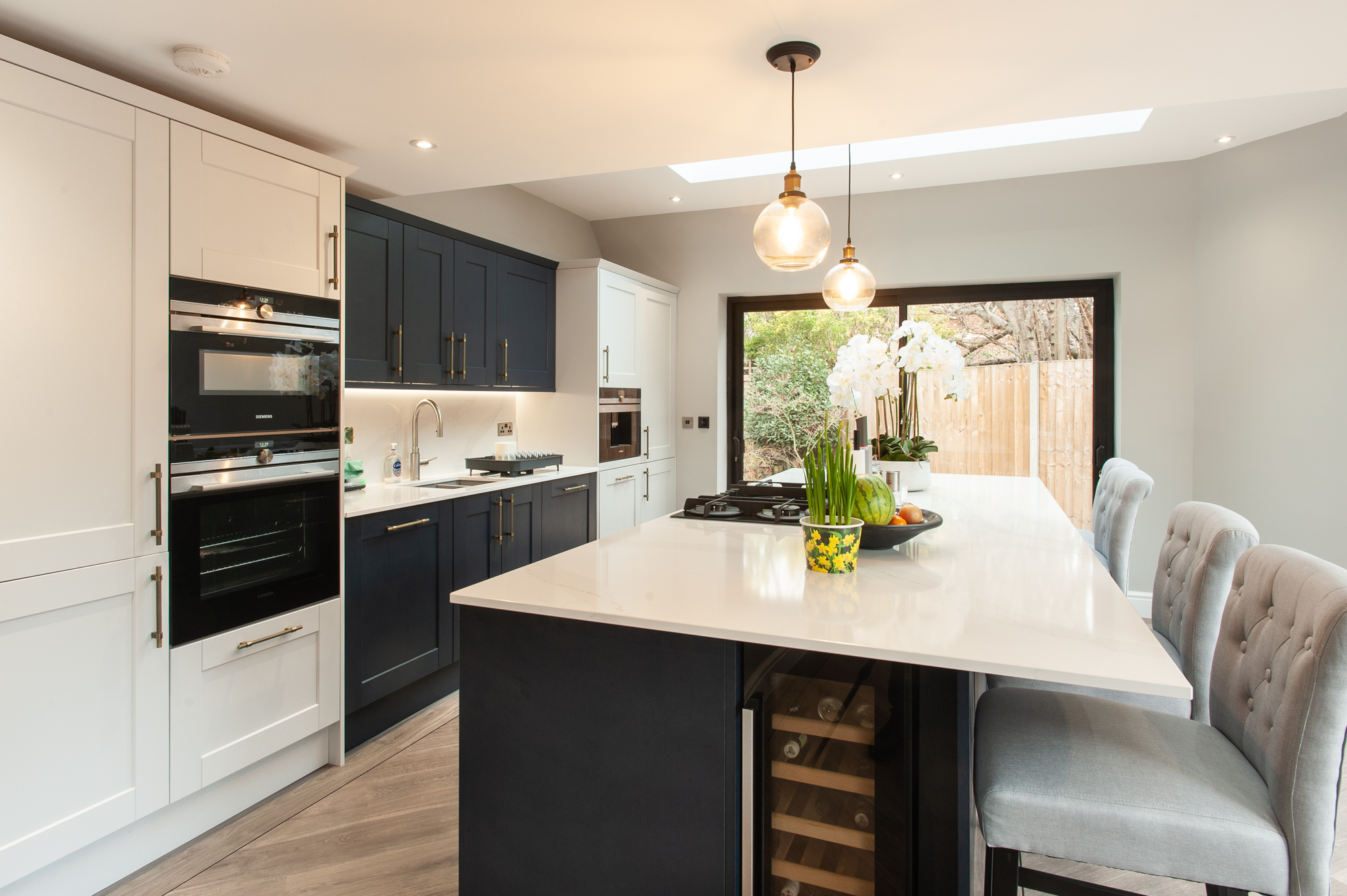Want to live in a perfect home, where you can enjoy cosy autumn weather with your family and have a steaming cup of hot chocolate during Christmas? Finding a new home can be very expensive but turning your current space into the home you always dreamt about can be a wise and economical decision.
In this article, we will discuss all the ways of saving money on home improvements.
Plan and budget ahead

Planning a refurbishment can be stressful and may seem expensive if not planned properly. Especially if you are planning an extension or conversion in a Victorian or period property that requires structural changes. Make sure you hire a surveyor who can help you identify any potential structural problems that you need to address before making any changes.
Although it may not seem like it, setting aside a little more money for a project might help you save money. This way, you can avoid cutting corners, which can sometimes be a false economy, particularly if there are significant issues and you end up spending more on repairs.
Make sure to include in the price of all your fixtures, materials, and finishes, as well as any expenses related to building regulations, skip rentals, or trash removal, as well as architect, surveyor, or structural engineer fees.
Finally, if you’re planning any significant home improvements, be sure to check any planning approval regulations as additional costs may be required.
Always take your time planning. Research online and ask your friends and network who might have already planned an extension. This way you are sure about every small detail before jumping into the actual project.
Focus on energy efficiency

Making you home energy efficiency starts with small steps. The easiest place to start is making sure that all the lightbulbs in your house are energy-efficient LEDs. You may be able to cut your carbon dioxide emissions by up to 40 kg annually if you switch all the lightbulbs in your house over to LEDs. This will also reduce your power costs since lighting accounts for around 11% of the typical UK household’s electricity usage.
Maximise natural light

The most proven and our favourite way is to bring in as much natural light as possible. This way you wouldn’t need to turn on lights during the daytime and will end up saving significantly on your energy bills. Our idea for a freshly lit home is to have beautiful skylights in the kitchen and dining area, and a nice bay/bow window in the living room, which can be turned into a cosy reading corner.
Replacing windows and doors

It is important to install double-glazed windows and doors, as they retain the heat in the house and help keep the place warm for a longer time in colder months. This is a popular option and may cost more than single-glazed windows. However, in the long run, they will help save up more than you know and of course, reduce your carbon footprint.
Invest in proper insulation

When it comes to insulation, there is no point in cutting corners. It is best to get the right insulation for your home which will cut down energy bills and improve the efficiency of your home. It is the most important component while renovating your home and getting it wrong can impact the entire space.
Heating controls
Using energy-efficient heating and heating controls is the most bulletproof way of minimising bills and carbon emissions. Have your thermostat set to the lowest comfortable temperature, generally between 18°C and 21°C. Turning the thermostat down even by a single degree from your usual setting can help you save up to almost £150 a year. If you don’t have a thermostat where you can schedule the heating hours, turn off the valves of your radiators while leaving for work every morning or in the rooms which are not in use.
Pay attention to material use
When planning a remodel or extension on a tight budget, going for cheap material may seem the correct option but low-cost material often results in substandard quality. This means you are more likely to have issues and repairs at a later stage.
The best way to decide on materials is to talk to your building contractor. Or else, seek advice from your friends who might have done a similar project in recent times. If structural changes are required, it is always best to use high-quality materials, as it will affect the foundation of your home, and repair due to cheap and low-quality material in the structure at a later stage is way more expensive than high-quality material in the primary stage.
Hire a professional team
It is best to hire a team of professionals who know what they are doing. Research online, read reviews, and ask your friends. Renovating is big deal and can take a huge chunk of your time. If the right attention is not given to the project, you may face difficulties and end up spending more. A team can take the burden off your head and manage the project while you can sit back, relax, and move into your new home without any issues.
If you are thinking of remodelling your home or extending your kitchen/loft, we’d love to hear from you. Book your free initial consultation with us now.




